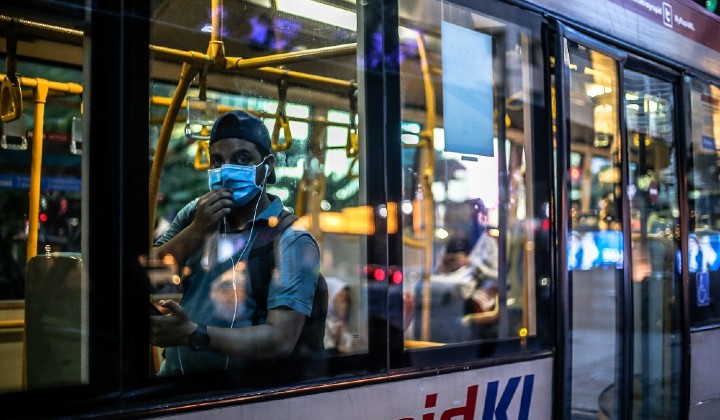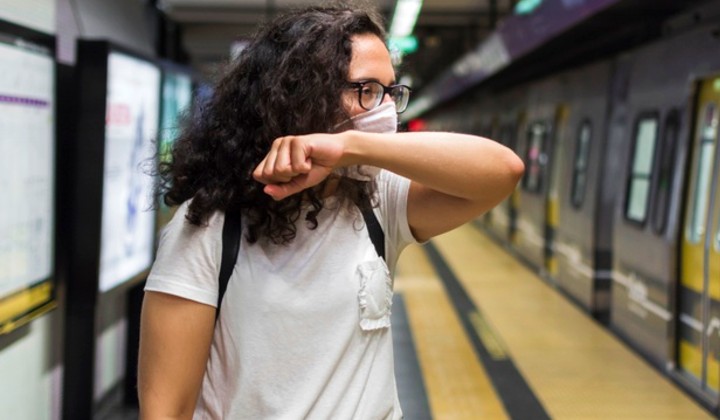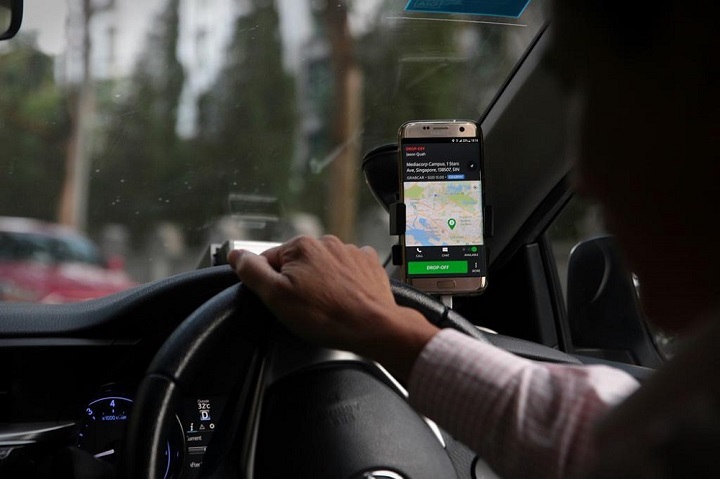Here’s what you need to know about public transportation standard operating procedures (SOPs) during this Movement Control Order (MCO 2.0) as stipulated by the National Security Council (MKN):
Bus

Which busses are allowed to operate?
Public buses, express buses, mini buses, chartered buses, tourist buses, transit buses, airport buses and factory buses are allowed to operate with 100% capacity
In Sabah only school buses and transit buses are allowed to operate, but with 50% capacity and within the same district.
What are the health SOPs for bus travel?
Passengers must undergo symptomatic screening before boarding and MUST wear a face mask at all times while onboard. Passengers are also advised to limit interactions while on the bus.
Passenger information will be recorded either manually or by scanning the bus’s MySejahtera QR code.
The bus driver or operator have the RIGHT to refuse passengers with symptoms.
Before beginning their duty, drivers need to undergo symptomatic screening and temperature checks. Those with symptoms are not allowed to work. Drivers also need to wear a face mask at all times while on duty.
Drivers should make periodic announcements to remind passengers to wear a face mask and limit their interactions.
Can I go on interstate or interdistrict travel by bus?
It is the responsibility of the passenger to obtain interdistrict or interstate travel permission before embarking on the journey.
Trains

Which trains are allowed to operate?
KTM services (Komuter, Intercity, ETS), MRT, LRT, monorail and the ERL (KLIA Express & KLIA Transit) can operate from 5am to midnight at 100% capacity.
What are the health SOPs for train travel?
Temperature checks on passengers and workers using thermographic cameras or thermometers before they enter the paid areas.
Passengers and workers with temperatures above 37.5 ° Celsius will not be allowed in and are advised to seek medical examination immediately.
Passengers are required to register themselves manually or by scanning the MySejahtera QR code displayed at every station and terminal.
Face masks are MANDATORY at all times and passengers are advised to limit interactions onboard the train.
Operators must provide hand sanitizers at all areas around the station, terminals and inside the train.
Cleaning and sanitization must be carried out at trains and facilities after every trip, or after the end of operations at depots.
Taxi & e-hailing

What are the operating hours for taxi and e-hailing services?
6.00am to 12.00pm (midnight).
How many passengers are allowed?
Maximum of TWO passengers only.
What are the health SOPs for taxi and e-hailing travel?
Passengers:
- Face mask is mandatory at all times.
- Scan the MySejahtera QR code provided before entering the vehicle or manually write your name and phone number.
- Only those without symptoms are allowed to use the service
Drivers:
- Face mask is mandatory at all times.
- Must provide a MySejahtera QR code in the vehicle
- Only drivers without symptoms are allowed to work
- Disinfect the vehicle at the end of operation
Drivers and passengers are encouraged to use hand sanitizer before and after pick up/drop-off.
What are the payment methods allowed for public transportation?
Cash is allowed but electronic payment methods are encouraged, such as purchasing tickets online, using cashless transaction cards like monthly passes and Touch ‘n Go.
For taxis and e-hailing, fare payment is via cashless methods only.
Source: therakyatpost.com
Site Search
Did you find what you are looking for? Try out the enhanced Google Search: